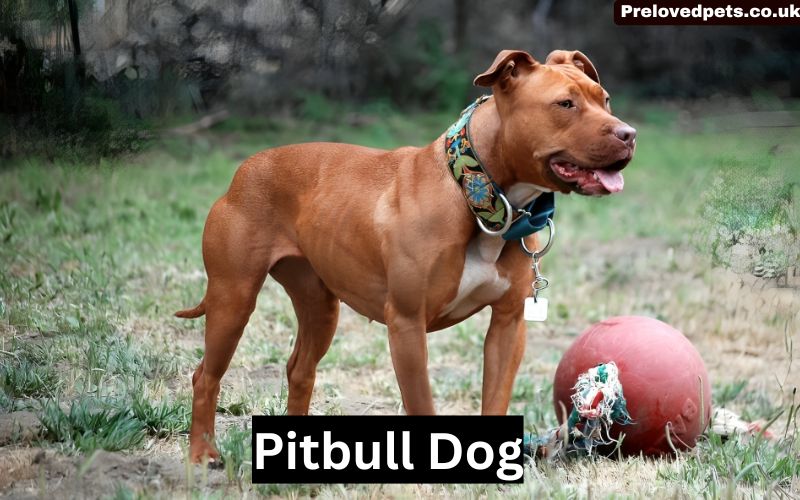As a pet owner, seeing your dog experience any health issue can be a cause for concern. Diarrhea is a common problem in dogs and can stem from various causes. While it can sometimes be a symptom of a serious underlying condition, it is often a temporary issue that can be managed with proper care. It can be particularly confusing and stressful when your dog has diarrhea but seems otherwise healthy and energetic.
This situation leaves many pet owners wondering what steps to take and when to worry. This comprehensive guide will help you understand the potential causes of diarrhea in dogs, assess the severity of the situation, provide home care tips, and know when to seek veterinary assistance to ensure your dog’s health and well-being.
Understanding Canine Diarrhea
Diarrhea in dogs is a common issue that can be caused by a variety of factors, ranging from minor dietary indiscretions to serious health conditions. When your dog has diarrhea but seems to be acting fine otherwise, it can be puzzling and concerning. In this article, we will explore the possible causes of diarrhea in dogs, when to worry, how to treat it at home, and when to seek veterinary care.
Common Causes of Diarrhea in Dogs
There are numerous reasons why a dog might experience diarrhea. Some of the most common causes include:
- Dietary Indiscretion: Dogs are notorious for eating things they shouldn’t. This can include spoiled food, garbage, or even foreign objects. Such dietary indiscretions are a leading cause of sudden-onset diarrhea in dogs.
- Dietary Changes: A sudden change in your dog’s diet can lead to gastrointestinal upset. If you’ve recently switched your dog’s food or introduced new treats, this could be the culprit.
- Food Intolerances or Allergies: Some dogs may develop diarrhea due to an intolerance or allergy to certain ingredients in their food. Common allergens include beef, dairy, wheat, and chicken.
- Parasites: Intestinal parasites such as giardia, roundworms, hookworms, and whipworms can cause diarrhea. These parasites are often contracted through contaminated water, food, or feces.
- Infections: Bacterial, viral, or fungal infections can lead to diarrhea. Common culprits include salmonella, parvovirus, and coronavirus.
- Medications: Certain medications, such as antibiotics and non-steroidal anti-inflammatory drugs (NSAIDs), can disrupt the balance of bacteria in the gut and cause diarrhea.
- Stress or Anxiety: Just like humans, dogs can experience gastrointestinal upset due to stress or anxiety. Changes in environment, routine, or household dynamics can trigger stress-related diarrhea.
- Toxins and Poisons: Ingesting toxic substances, such as certain plants, chemicals, or human medications, can cause severe gastrointestinal distress and diarrhea.
- Chronic Conditions: Conditions such as inflammatory bowel disease (IBD), exocrine pancreatic insufficiency (EPI), and certain types of cancer can cause chronic diarrhea.
Assessing the Situation: Is It an Emergency?
While occasional diarrhea is not uncommon in dogs, it’s important to determine whether the situation requires immediate veterinary attention. Here are some factors to consider:
- Frequency and Duration: If your dog has a single bout of diarrhea and is otherwise acting normal, it may not be cause for immediate concern. However, if diarrhea persists for more than 24-48 hours, it’s time to consult your vet.
- Consistency and Color: Note the consistency and color of your dog’s stool. Watery, bloody, or tarry stools, or stools with mucus, can indicate a more serious problem and warrant a vet visit.
- Dehydration: Diarrhea can quickly lead to dehydration, especially in puppies and small dogs. Check for signs of dehydration, such as dry gums, sunken eyes, and lethargy.
- Other Symptoms: Pay attention to any other symptoms your dog may be exhibiting, such as vomiting, loss of appetite, abdominal pain, or fever. The presence of additional symptoms can indicate a more serious underlying issue.
- Behavioral Changes: If your dog is lethargic, depressed, or in obvious discomfort, it’s important to seek veterinary care, even if the diarrhea is mild.
Home Care for Dogs with Diarrhea
If your dog has mild diarrhea but is otherwise acting fine, you can take several steps at home to help manage the condition and promote recovery:
- Fasting: Withhold food for 12-24 hours to give your dog’s gastrointestinal tract a chance to rest and recover. Ensure your dog has access to plenty of fresh water to prevent dehydration.
- Bland Diet: After the fasting period, introduce a bland diet to help soothe your dog’s stomach. Boiled white rice with plain, skinless chicken or boiled lean ground turkey is often recommended. Gradually reintroduce your dog’s regular food over the course of several days.
- Hydration: Ensure your dog stays hydrated. Offer small amounts of water frequently. You can also provide an electrolyte solution designed for pets or diluted, unflavored Pedialyte.
- Probiotics: Probiotics can help restore the balance of beneficial bacteria in your dog’s gut. Look for a high-quality, pet-specific probiotic supplement.
- Pumpkin: Plain, canned pumpkin (not pumpkin pie filling) is a natural remedy that can help firm up your dog’s stool. Add a small amount (1-2 teaspoons for small dogs, 1-2 tablespoons for larger dogs) to your dog’s food.
- Monitor: Keep a close eye on your dog’s condition. If diarrhea persists for more than 48 hours, or if your dog develops additional symptoms, contact your vet.
When to Seek Veterinary Care
While mild cases of diarrhea can often be managed at home, certain situations require prompt veterinary attention:
- Persistent Diarrhea: If diarrhea lasts for more than 48 hours despite home care, it’s important to consult your vet.
- Severe Symptoms: If your dog is experiencing severe diarrhea (watery, bloody, or mucous-laden stools), vomiting, loss of appetite, abdominal pain, or lethargy, seek veterinary care immediately.
- Dehydration: Signs of dehydration, such as dry gums, sunken eyes, and lethargy, require immediate veterinary attention.
- Puppies and Senior Dogs: Puppies and senior dogs are more vulnerable to the effects of diarrhea and can quickly become dehydrated. Always err on the side of caution and seek veterinary care if diarrhea occurs in these age groups.
- Underlying Health Conditions: If your dog has a known health condition or is taking medication, consult your vet if they develop diarrhea.
Diagnostic and Treatment Options
When you take your dog to the vet for diarrhea, the veterinarian will perform a thorough examination and may recommend diagnostic tests to determine the underlying cause. Common diagnostic tests include:
- Fecal Examination: A fecal sample will be examined for the presence of parasites, bacteria, and other pathogens.
- Blood Tests: Blood tests can help identify underlying health conditions, such as infections, organ dysfunction, and inflammatory diseases.
- Imaging: X-rays or ultrasound may be used to check for foreign objects, tumors, or abnormalities in the gastrointestinal tract.
- Endoscopy: In some cases, an endoscopy may be performed to visualize the inside of the gastrointestinal tract and obtain biopsies for further examination.
Treatment Options
Treatment for canine diarrhea depends on the underlying cause. Some common treatment options include:
- Medication: Depending on the cause, your vet may prescribe medications such as antibiotics, antiparasitics, anti-inflammatory drugs, or antidiarrheal medications.
- Dietary Management: Your vet may recommend a prescription diet or a homemade bland diet to help manage your dog’s condition.
- Hydration Therapy: In cases of dehydration, your dog may require intravenous (IV) fluids or subcutaneous fluids to restore hydration levels.
- Probiotics: Probiotic supplements can help restore the balance of beneficial bacteria in the gut.
- Surgery: In rare cases, surgical intervention may be necessary to remove foreign objects, tumors, or address other serious gastrointestinal issues.
Preventing Diarrhea in Dogs
While not all cases of diarrhea can be prevented, there are several steps you can take to reduce the risk:
- Diet and Nutrition: Feed your dog a balanced, high-quality diet appropriate for their age, size, and health status. Avoid sudden changes in diet and introduce new foods gradually.
- Avoid Table Scraps: Refrain from giving your dog table scraps or human food, as many foods that are safe for humans can be harmful to dogs.
- Prevent Access to Garbage: Ensure your dog does not have access to garbage, compost, or other potential sources of dietary indiscretion.
- Regular Deworming: Keep your dog on a regular deworming schedule as recommended by your vet to prevent intestinal parasites.
- Vaccinations: Ensure your dog is up-to-date on vaccinations to protect against infectious diseases that can cause diarrhea.
- Stress Management: Minimize stress in your dog’s environment by maintaining a consistent routine, providing adequate exercise, and using positive reinforcement training techniques.
- Clean Environment: Keep your dog’s living area clean and free of fecal matter. Regularly disinfect food and water bowls, toys, and bedding to reduce the risk of infections.
See Also: Dog Keeps Licking Lips
Conclusion
Diarrhea in dogs can be a frustrating and worrying issue for pet owners. However, if your dog is acting fine otherwise, there is often no need for immediate panic. By understanding the potential causes and knowing how to manage mild cases at home, you can help your furry friend recover quickly. Always keep a close eye on your dog’s condition and consult your vet if you have any concerns or if the diarrhea persists. With proper care and attention, your dog will be back to their happy, healthy self in no time.




